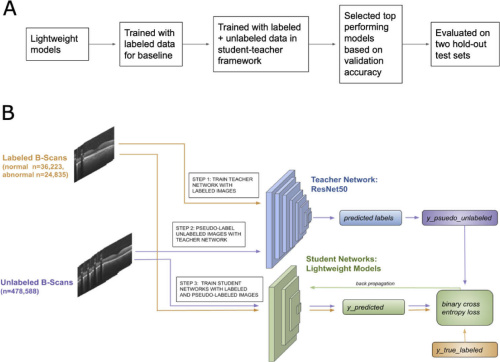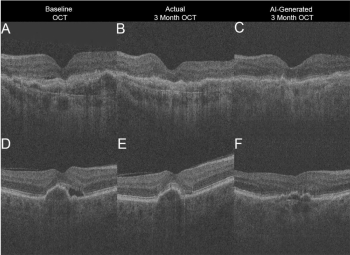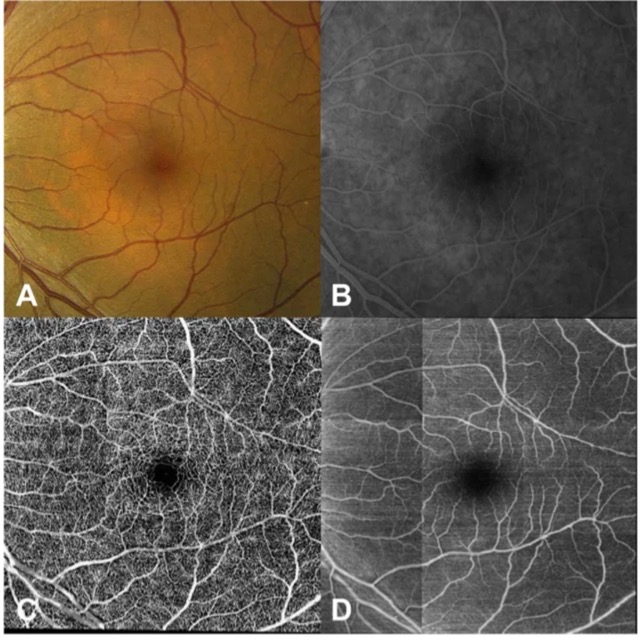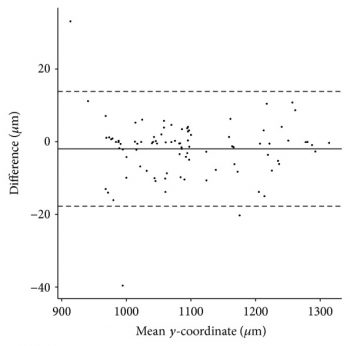In this study, Dr. Julia Owen and her co-authors developed a novel method for automated detection of abnormal optical coherence tomography (OCT) B-scan ("B-scan of interest") images of the retina. Commercial OCT devices do not routinely provide automated diagnoses, so disease detection requires expert interpretation of the images by an ophthalmologist. Reliable automated detection of potentially abnormal retinal scans could save time, as the machine could flag abnormal scans that require further review by a clinician. But there have been challenges with developing such models, including the lack of large training datasets, standardized methods for image acquisition and processing, agreed-upon evaluation metrics, and limitations in computing power.
Dr. Owne developed an approach that overcomes some of these limitations, by using an efficient method for training lightweight machine learning models, or models with fewer parameters and operations, using unlabeled and routinely-available data. Lightweight models are useful in clinical settings because they can perform quickly and are more compatible with portable devices.
Continue reading "Student becomes teacher: training faster deep learning lightweight networks for automated identification of optical coherence tomography B-scans of interest using a student-teacher framework"




